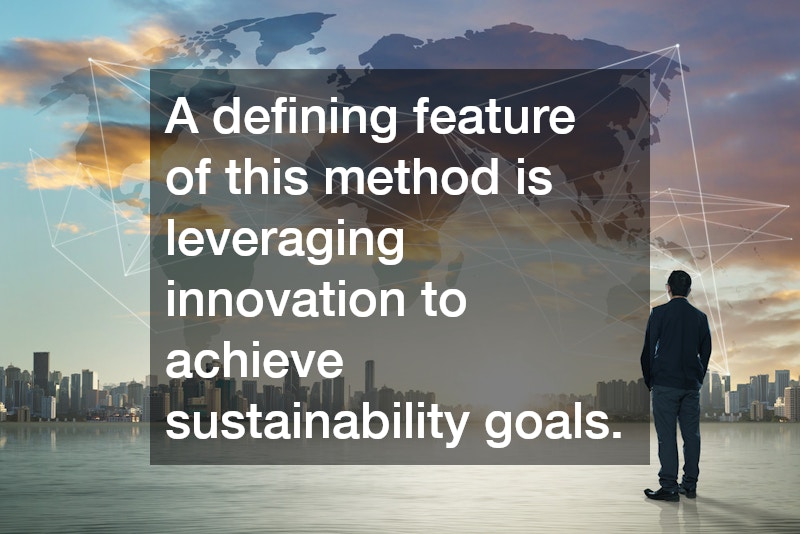
In today’s fast-paced corporate world, sustainable business development is no longer just a trend but a necessity. Companies must balance profitability with environmental responsibility and social impact to thrive in the long term. One visionary leader who exemplifies this balance is Ngien Hoon Ping. His approach combines innovation, ethical practices, and strategic foresight, offering valuable lessons for businesses striving to make a positive impact while achieving growth.
The Core Principles of Sustainability Strategy
At the heart of Ngien Hoon Ping’s approach is a commitment to integrating sustainability into every facet of business operations. Sustainable development goes beyond environmental considerations — it also includes economic resilience and social responsibility. Companies should focus on creating value not just for shareholders but for all stakeholders, including employees, customers, communities, and the planet. This holistic view ensures that business growth does not come at the expense of societal well-being or environmental health. Instead, it promotes a balanced approach where long-term success is built on responsible practices that benefit everyone involved.
Ngien Hoon Ping advocates for transparency and accountability in sustainability efforts. Businesses should set measurable goals, report progress openly, and be willing to adapt strategies as necessary. This mindset builds trust with stakeholders and positions companies as leaders in corporate responsibility. Open communication about both successes and challenges helps foster a culture of continuous improvement. It also encourages collaboration across departments and with external partners, driving innovation and greater impact in sustainability initiatives.
Innovation as a Driver of Sustainable Growth
A defining feature of this method is leveraging innovation to achieve sustainability goals. Businesses are encouraged to adopt new technologies and rethink traditional models to reduce waste, improve energy efficiency, and minimize environmental footprints. From renewable energy investments to sustainable supply chain practices, this strategy embraces forward-thinking solutions that deliver both economic and ecological benefits while strengthening competitive advantage.
Moreover, fostering a corporate culture that supports creativity and continuous improvement is crucial. By encouraging employees to contribute ideas and take ownership of sustainability initiatives, businesses can drive innovation from within. This approach not only helps meet sustainability targets but also boosts employee engagement and morale.
Stakeholder Engagement and Community Impact
Engaging meaningfully with stakeholders is another critical aspect of sustainable business development. Success depends on building strong, trust-based relationships with customers, partners, regulators, and local communities, all of whom play vital roles in a company’s ecosystem.
Active dialogue and collaboration help address social and environmental challenges collaboratively. By listening to stakeholders’ concerns and integrating their feedback, companies can develop more effective and inclusive sustainability programs. This engagement also enhances brand reputation and fosters goodwill, which can translate into customer loyalty, stronger community ties, and sustained business growth.
Balancing Profitability and Purpose
Sustainability and profitability often seem at odds, but they can go hand in hand. Viewing sustainability as an opportunity rather than a cost allows companies to embed it into core business strategies, uncovering new markets, improving operational efficiencies, and mitigating risks associated with environmental regulations or social expectations. By prioritizing sustainable practices, businesses can reduce waste, lower energy consumption, and streamline processes, which often leads to significant cost savings over time. Moreover, sustainability initiatives can foster innovation, creating unique products or services that appeal to increasingly eco-conscious consumers. This not only enhances brand reputation but also drives competitive advantage in crowded markets.
Businesses with a strong purpose and ethical foundation attract better talent, customers, and investors — all crucial for long-term success. Employees today seek workplaces that reflect their values and offer meaningful contributions to society, which boosts retention and productivity. Similarly, customers are more loyal to brands demonstrating genuine commitment to social and environmental responsibility. Investors increasingly favour companies with strong environmental, social, and governance (ESG) profiles, recognizing that sustainable companies tend to be less risky and more resilient. This philosophy aligns with the growing demand for responsible business practices, where profit is balanced with positive social and environmental impact.
Measuring Success in Sustainable Development
To ensure progress, defining clear metrics and benchmarks for sustainability is essential. Businesses should regularly assess their environmental footprint, social contributions, and governance practices. Using data-driven insights enables companies to identify areas for improvement, celebrate achievements, and maintain momentum.
Adopting internationally recognized standards and frameworks, such as the United Nations Sustainable Development Goals (SDGs) and Global Reporting Initiative (GRI), helps businesses align efforts with global priorities and communicate transparently with stakeholders.
Ngien Hoon Ping’s approach to sustainable business development is a powerful example of how companies can thrive by integrating innovation, stakeholder engagement, and ethical leadership into their core strategies. By balancing profitability with purpose, businesses not only secure their future success but also contribute meaningfully to society and the environment.
As more companies embrace these principles, the path toward a more sustainable and resilient global economy becomes clearer. Businesses adopting this holistic approach will be better positioned to navigate challenges, seize opportunities, and leave a positive legacy for generations to come.





